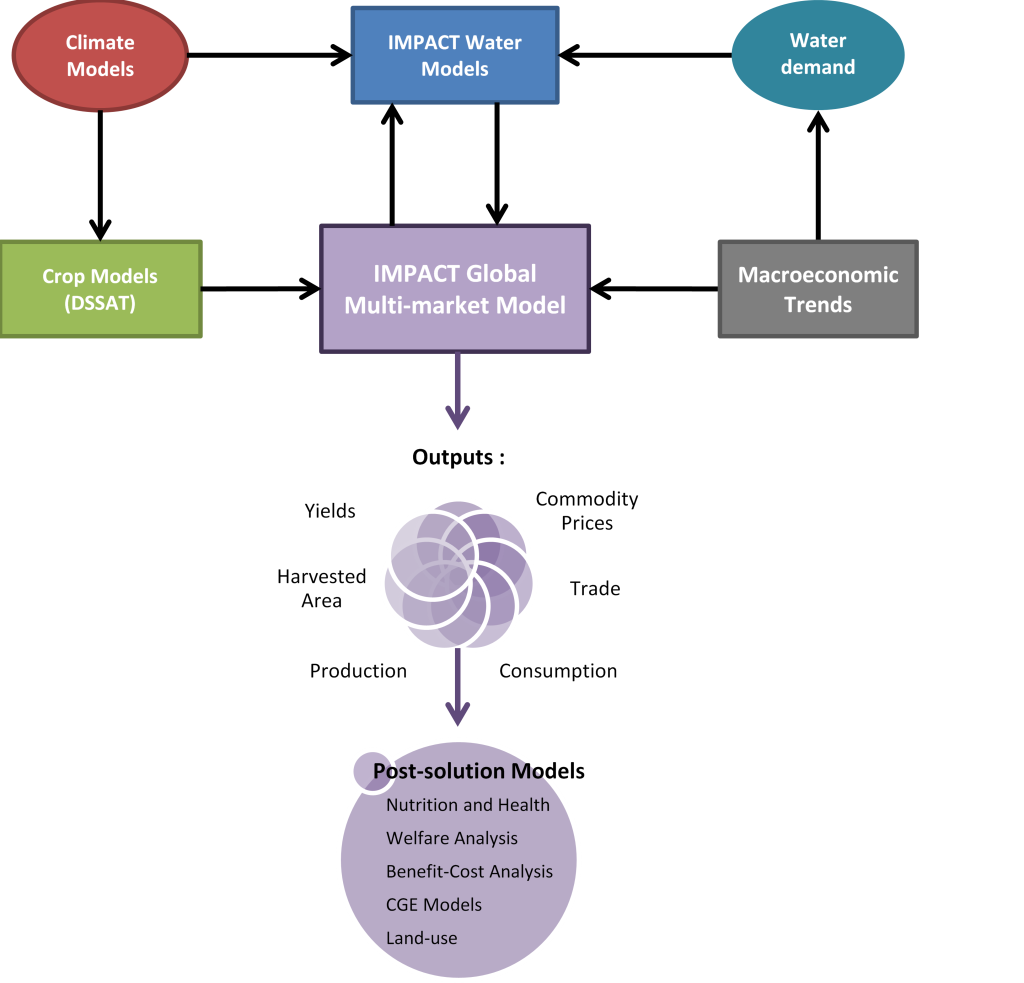By Daniel Mason-D'Croz (IFPRI)
Models can be powerful tools that help us systematically apply data and theory to test our understanding of complex and interconnected systems. A major focus for the Global Futures and Strategic Foresight project is to use IFPRI’s IMPACT model for quantitative foresight modeling to analyze how agricultural and food systems might evolve under alternative futures across multiple dimensions (i.e. population, climate, economic development, among many others). As new data and knowledge become available, quantitative models need to be reviewed and updated to reflect the improved understanding.

Figure 1- IFPRI’s IMPACT Model
Continual updating is an integral part of the IMPACT model’s history. With improved data and computational power, the IMPACT team works to enhance the model’s relevance for policymakers in exploring critical issues around long-term agriculture development and food security. The latest model improvements are just the next chapter in the model’s history, building on the work of previous efforts to simulate the food system in ever greater detail by expanding the number of commodities and individual countries covered by IMPACT.
In this latest update, the IMPACT model was designed to incorporate not only better agricultural data but also best practices in model structure and coding. This enables the model to expand to cover new areas of research interest while at the same time ensuring cleaner and modular code. Improvements in model design and structure are explained in detail in the new documentation. Additionally, we go into more detail on the IMPACT modeling philosophy, including discussions on scenario analysis and the role of simulation models in ex-ante analysis.
To read the new IMPACT documentation please go to http://www.ifpri.org/publication/international-model-policy-analysis-agricultural-commodities-and-trade-impact-model-0.





